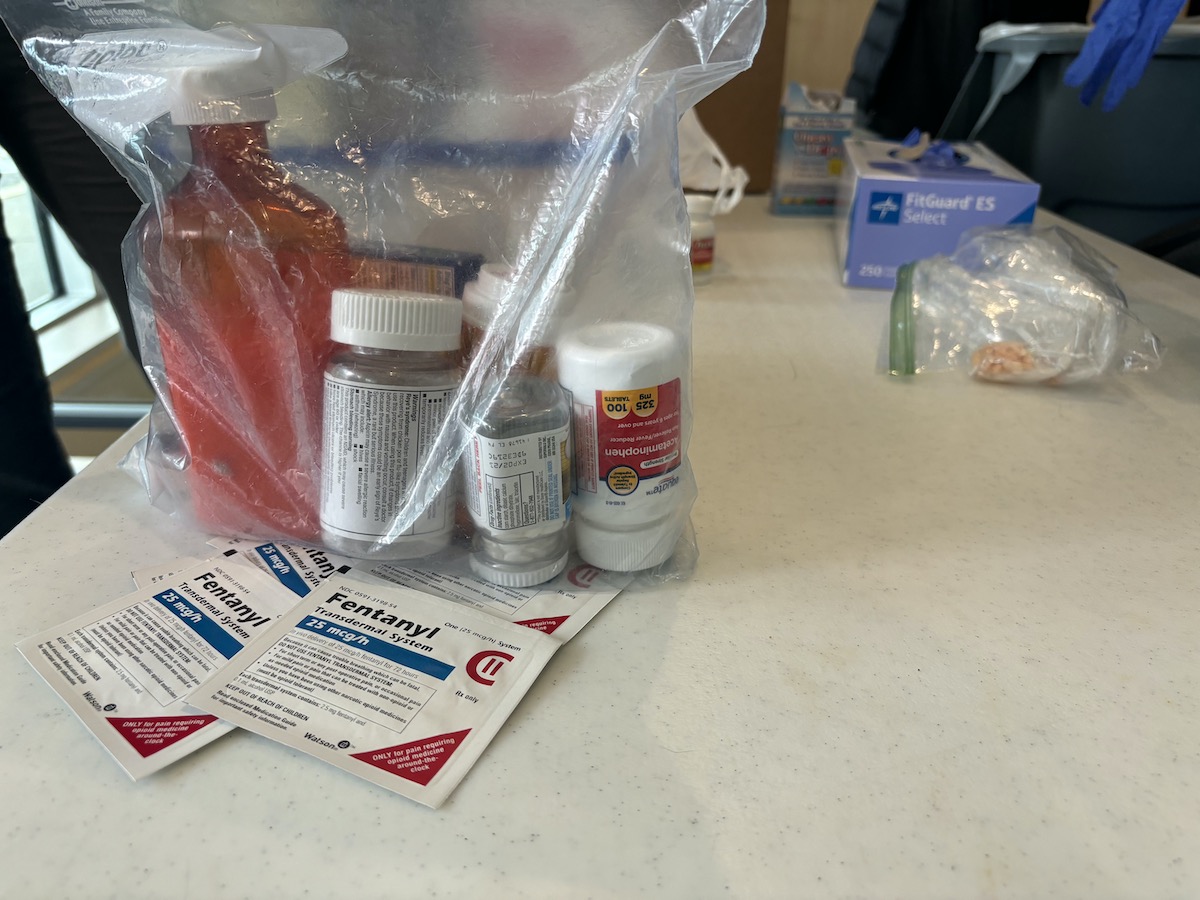National Prescription Drug Take-back Day is a day for community members to go through their homes and get rid of any prescription medications they are no longer using. The event took place from 10 a.m.-2 p.m. on Oct. 28 At Marshfield Medical Center here in Eau Claire.
The event has been around nationally for the last 15 years, according to Bruce Bergmann, a former retail pharmacy manager at the Eau Claire Marshfield Medical Center. Marshfield Clinic has been partnered with the Sheriff’s Office in this effort since 2012.
Bergmann has been involved with the takeback day for the last 10 years that Marshfield has been doing it in Eau Claire, working with the police department to collect and dispose of the collected medications
“The Department of Justice authorizes the local police departments to collect medications. Medications are collected then destroyed in a manner that’s good for the environment,” Bergmann said.
The benefits of an event like this are good for the community as a whole for a multitude of reasons. Bergmann said groundwater can be contaminated with medications if disposed of ineffectively, like flushing them. But that’s not the only reason this event is important.
Bergmann said some medications have the potential for abuse and misuse, but events like this eliminate that possibility by getting them out of the house.
This point was supported by the current public health specialist for Eau Claire County, Sarah Dillivan-Pospisil. Pospisil has been with Marshfield for the last six years.
“We encourage community members to safely dispose of any sort of opioid prescriptions so that those don’t get into the hands of those that shouldn’t be using them,” Pospisil said.
“We’re really looking to have opportunities for community members to clean out their medicine cabinets to hopefully prevent any sort of poisoning or overdose,” Pospisil said.
Pospisil said that Wisconsin typically collects the most across the United States. Eau Claire in the last four years has collected over 4,000 pounds of medications. Just last year they saw 4,468 pounds given to them. Since 2012, they have collected over 38,700 pounds from the community
The clinic collects prescriptions, over-the-counter drugs and even pet medications, but some things can’t be taken.
“We do not collect any sort of needles, sharps or EpiPens. We’re looking only to collect pills, liquids, and patches” Pospisil said.
The event is held twice a year. Once in April, and once in October. But if the date passes by, there are still ways to turn in those unwanted medications
“In Eau Claire county, we actually have 10 locations that are available year-round to community members,” Pospisil said.
There are drop boxes in Hyvee, CVS, Walgreens, the Eau Claire Government Center and places in Altoona, Fall Creek, and Augusta for community members to drop off their medications.
“The whole intent is to really get any sort of medication that you no longer need or is expired out of your household so other people don’t have access to that to misuse it, which could potentially lead to addiction,” Pospisil said.
You can find more information on their website, echealthalliance.org, where there are videos of each drop-off location with the service hours and what can be dropped off.
Agbara can be reached at [email protected].








